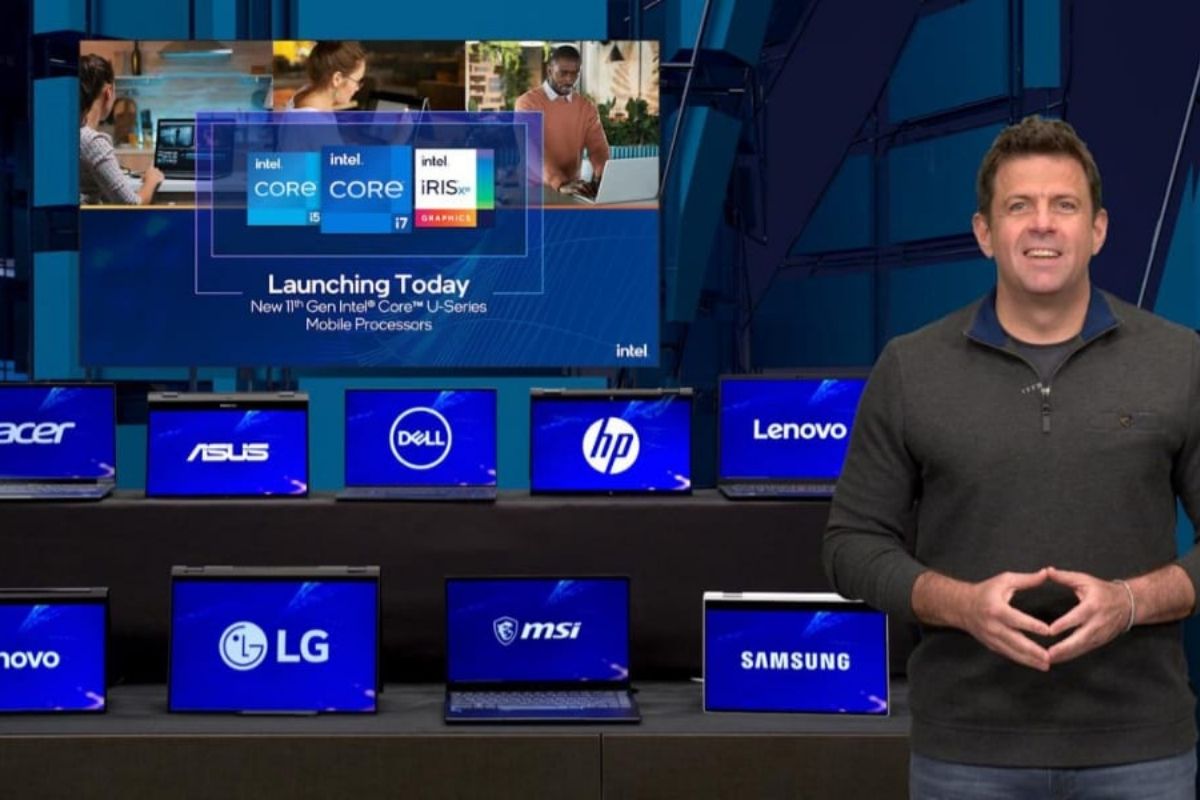Popular chip maker Intel has been going through a bit of a tough phase, having been hammered by both AMD and Apple’s proprietary offering called the M1 chip. Both these chips have accounted for increased sales for their specific devices, with the former taking the fight to Intel and having become the number one choice for gamers and tech enthusiasts. Now, it seems that Intel is further improving its portfolio to ensure proper competition. Despite this, in April, Intel launched the 11th Gen Tiger Lake H-series laptop processors aimed at gamers and creators in a bid to claw back that essential enthusiast crowd and, its charge is not yet over, as it has launched two new products, namely two new 5.0 GHz processors for laptops alongside the first 5G module for laptops and personal computers. Recently, at Computex 2021 Intel announced two new laptops processors under its U-series of chips, with the two new models being the Intel Core i7-1195G7 and the Intel Core i5-1155G7, which are the strongest chips in the i7 and i5 ranges. The chips also offer powerful specifications with thin and light laptops in mind.
What Else Do We Know About The Intel 11th Gen Chips?
Both new 11th Gen Intel Core-U processors will work on laptops that can offer up to 5GHz out of the box. They will also feature Wi-Fi 6 and 6E support. The chips are also available in quad-core and octa-core variants, with the chips offering improved application performance paired with better graphics performance when gaming with Intel’s Iris Xe graphics. The laptops will also get support for the company’s 5G module called the Intel 5G Solution 5000. The chip is created in collaboration with Mediatek for the modem software and Fibocom for the new M.2 module, with the module having been in development for a couple of years with the ability to offer 5G in the Sub-6 form. These chips should be available on Asus, Acer and HP laptop. Additionally, as per Intel, more than 60 laptop models will sport the new Intel Core i7-1195G7 and Intel i5-1155G7 processors in the next few months, from OEMs like Asus, Lenovo, MSI and Acer. The company also expects over 250 models to arrive later in 2021, powered by the U-series chip. This move will ensure Intel’s strengthening of the chipset portfolio to compete with AMD, a company that has been on the prowl simultaneously.
